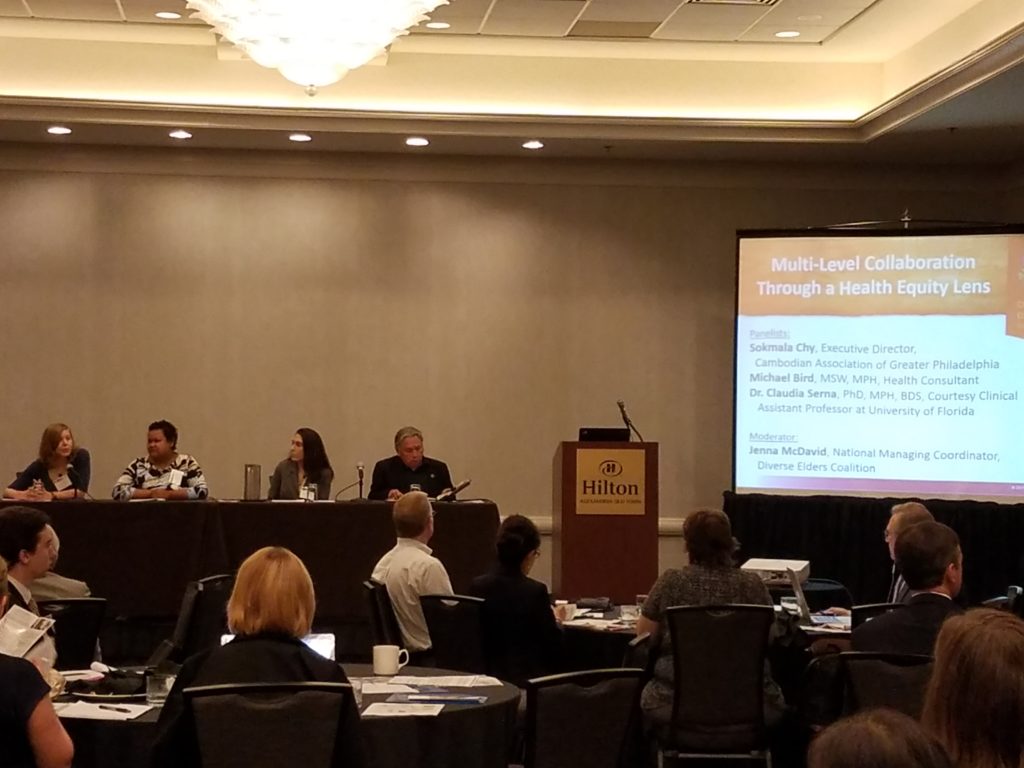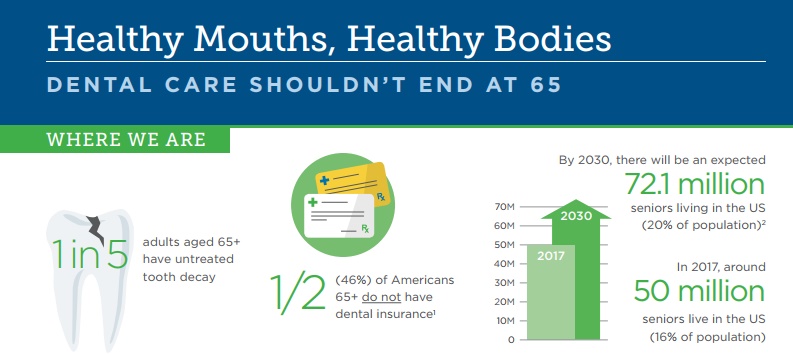Last week, the Diverse Elders Coalition traveled to Alexandria, VA for the Oral Health America Medicare Symposium. Advocates, policymakers, and providers convened for this Symposium to discuss how to get a dental benefit included in Medicare. A recent study found that 52% of older adults are unaware that Medicare doesn’t cover routine dental care – maybe you didn’t know that, either!
Given how important oral health is to overall health – if you can’t chew or swallow food, or if you are living with chronic pain from infection or gum disease, your overall health is certainly impacted! – it is shocking that once an elder turns 65, they are their own for obtaining dental insurance. And despite both bipartisan support for adding a dental benefit to Medicare as well as solid research showing cost savings by doing so, lawmakers have not moved on this opportunity.

The Diverse Elders Coalition was invited to the Symposium to lead a panel discussion about how national and local organizations can partner to improve health equity for diverse older adults. We hoped that the oral health advocates and professionals in the audience would use our experiences and expertise to develop strategies that would engage diverse communities as they and their organizations worked to improve the oral health of older adults. The panel was moderated by Jenna McDavid, DEC National Managing Coordinator, and featured an incredible trio of speakers: Sokmala Chy, Executive Director of the Cambodian Association of Greater Philadelphia; Michael Bird, AARP health consultant and past President of the American Public Health Association (read the AARP Tribal Community Survey report that he helped to facilitate); and Dr. Claudia Serna, a researcher and health advocate for Latino communities with the University of Florida, whose recent research includes a study on the use of hospital emergency rooms for oral health care by adults in Florida.
Our panelists discussed a wide range of topics during our hour-long session, including the need for cultural and linguistic competence when providing services to diverse communities, the necessity of collecting data on the communities you serve so that you know who they are and what they need, and the importance of letting communities dictate the services that they receive, such as in the example of dental therapists operating in tribal communities in Alaska. It was a powerful panel that shed light on diverse elders who often are not welcomed into mainstream discussions around health and aging.
You can see photos and highlights from the Symposium by viewing the #MedicareDental hashtag on Twitter. And during the Symposium, Oral Health America released a toolkit that can be used to continue to advocate for the addition of a dental benefit to Medicare. Click here to check out the toolkit, which includes infographics and other shareable content for social media, position papers and research, and more.
We are grateful to Oral Health America for their leadership on this issue and for their partnership with the DEC to bring diverse communities to the table. As Sokmala said during our panel, “So often, our communities aren’t even included in the infographics shown at these events, much less invited to speak at them.” The Diverse Elders Coalition pledges to elevate the stories, experiences, and needs of diverse elders in oral health and in all facets of healthy aging.
The opinions expressed in this article are those of the author and do not necessarily reflect those of the Diverse Elders Coalition.


